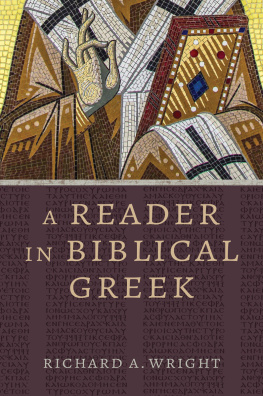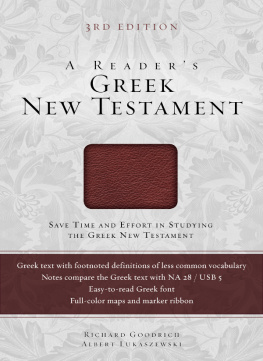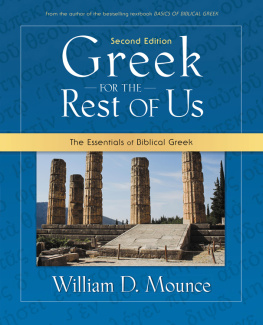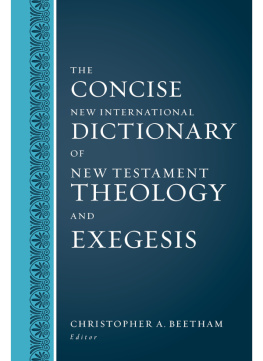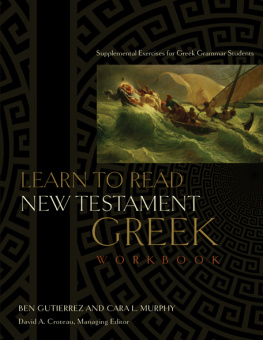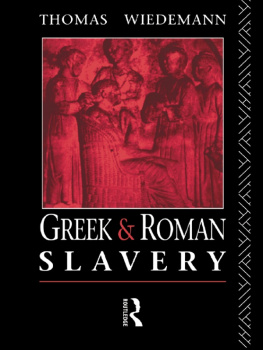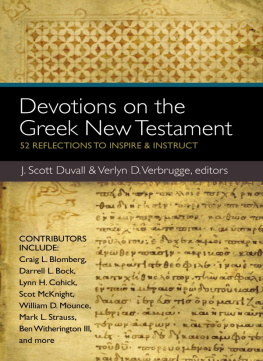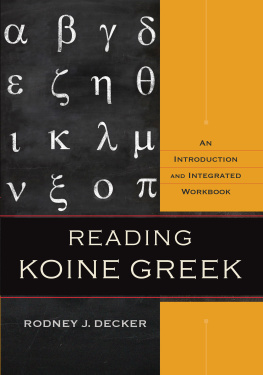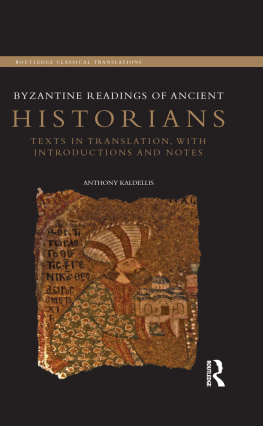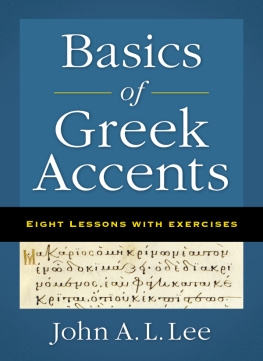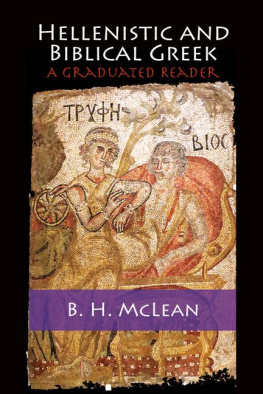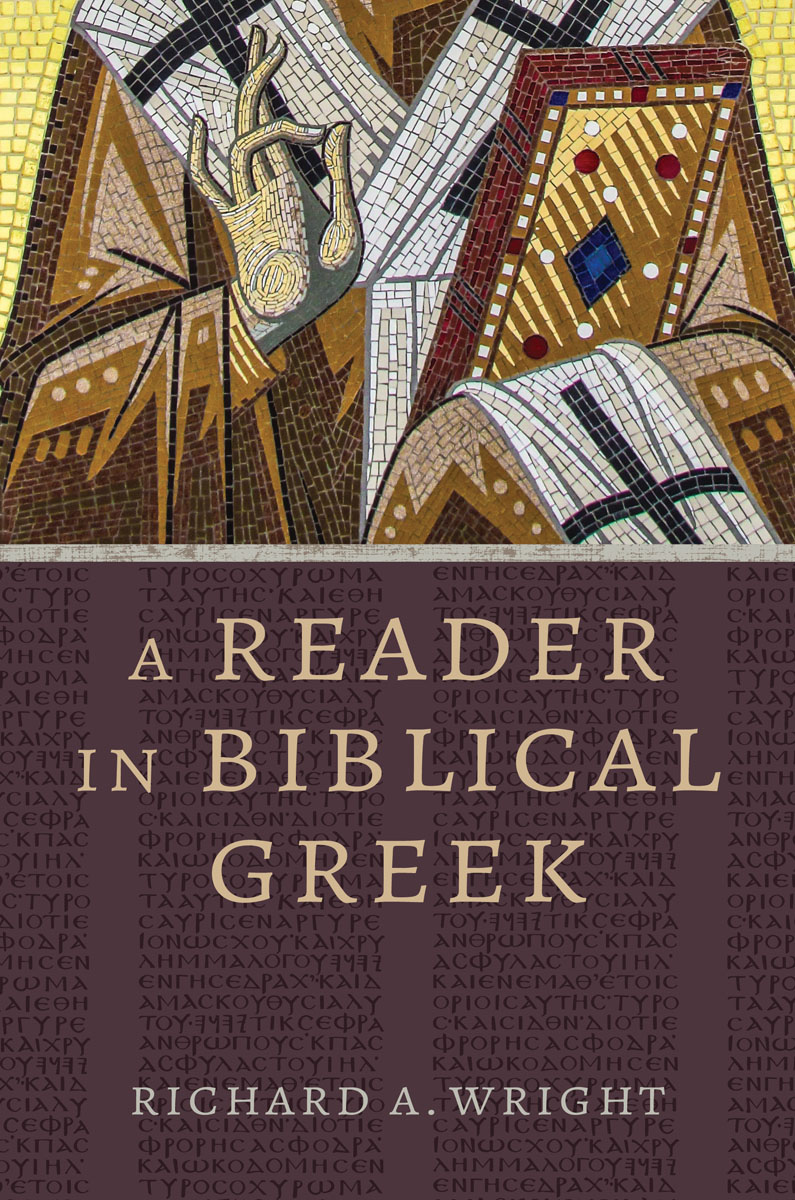


The Eerdmans Language Resources series is a collection of textbooks, readers, reference books, and monographs pertaining to languages commonly used in biblical and theological studies. In these volumes, students and scholars will find indispensable help in understanding and mastering Hebrew, Aramaic, Greek, and other languages.
Other ELR Titles
Jacob N. Cerone and Matthew C. Fischer, Daily Scriptures: 365 Readings in Hebrew, Greek, and Latin
N. Clayton Croy, A Primer of Biblical Greek
S. R. Driver, A Treatise on the Use of the Tenses in Hebrew and Some Other Syntactical Questions
Holger Gzella, Aramaic: A History of the First World Language
William L. Holladay, A Concise Hebrew and Aramaic Lexicon of the Old Testament
Mark Jeong, A Greek Reader: Companion to A Primer of Biblical Greek
Page H. Kelley and Timothy G. Crawford, Biblical Hebrew: An Introductory Grammar, 2nd ed.
Page H. Kelley, Terry L. Burden, and Timothy G. Crawford, A Handbook to Biblical Hebrew: An Introductory Grammar, 2nd ed.
William Sanford Lasor, Handbook of Biblical Hebrew
Rodney A. Whitacre, A Grammar of New Testament Greek
Wm. B. Eerdmans Publishing Co.
4035 Park East Court SE, Grand Rapids, Michigan 49546
www.eerdmans.com
2022 Richard A. Wright
All rights reserved
Published 2022
Printed in the United States of America
Book design by Jamie McKee
28 27 26 25 24 23 22 1 2 3 4 5 6 7
ISBN 978-0-8028-7924-0
Library of Congress Cataloging-in-Publication Data
Names: Wright, Richard A., 1961 editor, writer of added commentary.
Title: A reader in Biblical Greek / [edited and supplied with commentary by] Richard A. Wright.
Other titles: Eerdmans language resources.
Description: Grand Rapids, Michigan: Wm. B. Eerdmans Publishing Co., 2022. | Series: Eerdmans language resources | Includes bibliographical references and index. | Text in Biblical Greek, with introduction and notes in English. | Summary: A graduated reader of biblical Koine for anyone who has completed at least one year of Greek, with selections from the New Testament, the Septuagint, and noncanonical early Christian writingsProvided by publisher.
Identifiers: LCCN 2022004033 | ISBN 9780802879240 (paperback)
Subjects: LCSH: Greek language, BiblicalReaders. | Greek language, Hellenistic (300 B.C.-600 A.D.)Readers. | LCGFT: Readers (Publications)
Classification: LCC PA695 .R43 2022 | DDC 487/.4dc23/eng/20220204
LC record available at https://lccn.loc.gov/2022004033
New Testament Greek text taken from Nestle-Aland, Novum Testamentum Graece, 28th Revised Edition, edited by Barbara and Kurt Aland, Johannes Karavidopoulos, Carlo M. Martini, and Bruce M. Metzger in cooperation with the Institute for New Testament Textual Research, Mnster/Westphalia, 2012 Deutsche Bibelgesellschaft, Stuttgart. Used by permission.
Septuagint Greek text taken from Septuaginta, edited by Alfred Rahlfs, Second, Revised Edition, edited by Robert Hanhart, 2006 Deutsche Bibelgesellschaft, Stuttgart. Used by permission.
Contents
Preface
I discovered the joys of teaching Greek comparatively late in my teaching career. But much of my teaching now revolves around helping students read texts in Hellenistic Greek. Much of that work has been focused on students in their second year of study, both undergraduate and graduate students. This volume has arisen out of that pedagogical context.
At Oberlin College, I had the privilege of working with three fine classical language teachers. Nathan A. Greenberg, James J. Helm, and Thomas Van Nortwick intertwined careful attention to syntactical details with concern for the ways in which those details might shape the understanding of an ancient text and combined these foci with an enthusiasm and humor that I can only hope make their way into my own classes.
I have incurred a number of debts in the production of this volume. Trevor Thompson has been a patient editor and has offered sage advice at crucial points in the writing process. Several friends and colleagues have given generously of their time and expertise. Ken Cukrowski, Chris Hutson, and Mark Hamilton, colleagues at Abilene Christian University, and Timothy Brookins at Houston Baptist University have read sections and provided meaningful feedback that saved me from numerous errors. Jeffrey Peterson at Lipscomb University, Austin Center, has been a friend and conversation partner for many years and has been a valuable sounding board throughout the process. My graduate assistants Dominique Rideout and Troy Wade provided significant feedback along the way. The errors that, no doubt, remain are my own responsibility.
I am grateful to my own students who have helped shape both my selection of texts and my approach to those texts. I am also grateful to Professor Hutson, who used sections of the book with students in his second-year Greek courses.
My wife, Claudia, as she has always done for my work, read the entire manuscript and improved the clarity of my writing. Without her support and encouragement, this volume could not have been completed.
Abbreviations
< | The word that follows this sign is the lexical form of the word |
| first person |
| second person |
| third person |
acc. | accusative |
act. | active |
adv. | adverb |
aor. | aorist |
BDAG | Danker, Frederick W., Walter Bauer, William F. Arndt, and F. Wilbur Gingrich. AGreek-EnglishLexicon of the New Testament and Other Early Christian Literature. 3rd ed. Chicago: University of Chicago Press, 2000. |
BDF | Blass, Friedrich, Albert Debrunner, and Robert W. Funk. A Greek Grammar of the New Testament and Other Early Christian Literature. Chicago: University of Chicago Press, 1961. |
BHGNT | Baylor Handbook on the Greek New Testament |
Conybeare & Stock | Conybeare, F. C., and St. George Stock. Grammar of Septuagint Greek: With Selected Readings, Vocabularies, and Updated Indexes. Peabody, MA: Hendrickson, 1995. |
dat. | dative |
ESV | English Standard Version (2011) |
fem. | feminine |
fut. | future |
gen. | genitive |
GELS | Muraoka, Takamitsu. AGreek-EnglishLexicon of the Septuagint. Leuven: Peeters, 2009. |
GNTG | Whitacre, Rodney A. A Grammar of New Testament Greek. Grand Rapids: Eerdmans, 2021. |
Heb. | Hebrew |
Hist. eccl. | Historia ecclesiastica |
impf. | imperfect |
impv. | imperative |
ind. |
Next page
